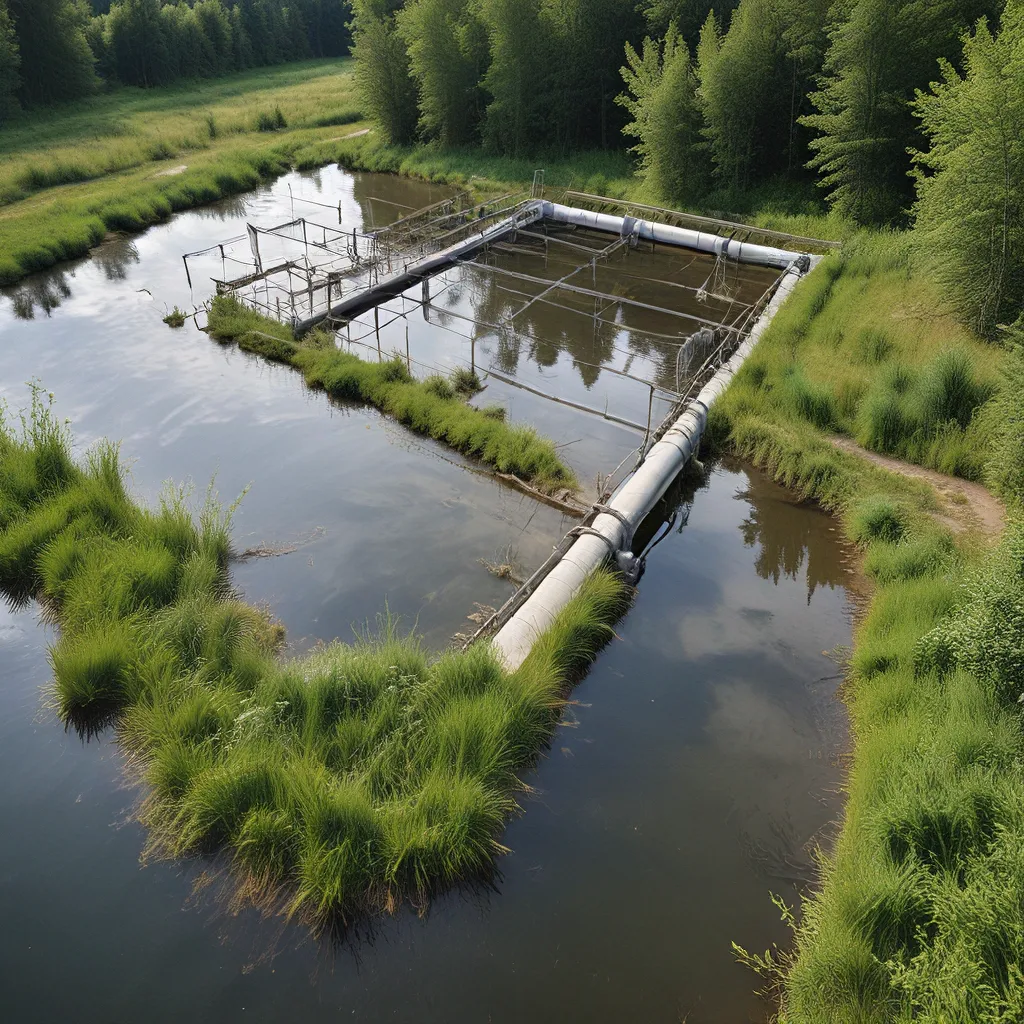
As the world faces pressing environmental challenges, the role of wastewater treatment has taken on a new significance. Gone are the days when we could simply flush and forget. Today, we’re realizing that what we do with our wastewater can have a profound impact on the health of our local ecosystems and the overall resilience of our communities.
And that’s where nature-based solutions come into play. These innovative approaches to wastewater management harness the power of natural processes and ecosystems to not only treat our water but also provide a host of additional benefits. It’s like getting a two-for-one deal – cleaner water and a healthier environment.
Embracing the Power of Nature
When I first learned about nature-based solutions for wastewater treatment, I have to admit, I was a bit skeptical. I mean, how could something as “natural” as wetlands or constructed ponds possibly compete with the advanced technology we’ve developed in the industry? But as I dug deeper, I quickly realized that Mother Nature has a few tricks up her sleeve that we’ve been overlooking.
Take constructed wetlands, for example. These engineered ecosystems use a variety of plants, soils, and microorganisms to remove pollutants from wastewater, just like natural wetlands do. But the real magic lies in the way they can also provide habitat for wildlife, carbon sequestration, and flood mitigation. It’s like hitting the environmental jackpot with a single solution.
And the benefits don’t stop there. According to FEMA, nature-based solutions can also help to enhance recreational opportunities, improve air quality, and even increase property values in the surrounding areas. It’s a win-win-win for the environment, the community, and the bottom line.
Blending Technology and Nature
Of course, nature-based solutions aren’t a one-size-fits-all solution. In many cases, they’re best used in combination with more traditional wastewater treatment technologies. Take a look at the following table for a comparison of some of the key differences and similarities:
| Feature | Traditional Wastewater Treatment | Nature-Based Solutions |
|---|---|---|
| Pollutant Removal | Highly effective at removing a wide range of pollutants | Effective at removing organic matter, nutrients, and some pathogens |
| Energy Consumption | Energy-intensive, with a large carbon footprint | Generally lower energy consumption and carbon footprint |
| Operational Complexity | Highly complex, requiring specialized expertise | Relatively simple, with lower maintenance requirements |
| Ecosystem Services | Limited to water treatment alone | Provides a range of additional ecosystem services |
| Resilience to Climate Change | May be vulnerable to extreme weather events | Can enhance resilience and adaptive capacity |
As you can see, nature-based solutions and traditional technologies each have their own strengths and weaknesses. The key is finding the right balance and combining them in a way that maximizes the benefits for your specific community and its unique needs.
Transforming Wastewater into a Resource
But the real game-changer with nature-based solutions is the way they can transform wastewater from a problem to be solved into a valuable resource to be harnessed. Think about it – the nutrients and organic matter that we’ve traditionally viewed as pollutants can actually be used to nourish the very ecosystems we’re trying to protect.
As the International Water Association (IWA) points out, nature-based solutions can enable the recovery and reuse of water, energy, and nutrients from wastewater. This not only reduces the burden on our natural resources but also creates new economic opportunities for the communities that embrace this approach.
Imagine a world where wastewater treatment plants are transformed into vibrant, living ecosystems that not only cleanse our water but also provide food, fuel, and other valuable products. It’s a future that’s closer than you might think, and it’s all thanks to the power of nature-based solutions.
The Future of Wastewater Treatment
As I look to the future of wastewater treatment, I can’t help but feel a sense of excitement and optimism. The integration of nature-based solutions is rapidly transforming the industry, paving the way for a more sustainable, resilient, and ecologically-harmonious approach to managing our water resources.
Recent research suggests that the use of nature-based solutions in wastewater treatment can help to mitigate the impacts of climate change, biodiversity loss, and other pressing environmental challenges. By leveraging the power of natural processes, we can create win-win scenarios that benefit both our communities and the ecosystems that sustain them.
Of course, there’s still a lot of work to be done. Ongoing research and innovation are needed to continue refining and optimizing these nature-based approaches. And collaboration between policymakers, industry leaders, and community stakeholders will be crucial to driving the widespread adoption of these solutions.
But I’m confident that the future of wastewater treatment is bright. By embracing the power of nature-based solutions, we can not only clean our water but also build a more sustainable, resilient, and ecologically-balanced world. And that’s a future I’m excited to be a part of.
If you’re interested in learning more about how Alpha Wastewater is incorporating nature-based solutions into our own wastewater treatment practices, I encourage you to explore our website or reach out to our team. We’re always eager to share our knowledge and explore new ways to transform wastewater into a resource for the benefit of our communities and the planet as a whole.